#Albertsons
Explore tagged Tumblr posts
Text
Snacks from the 2000s

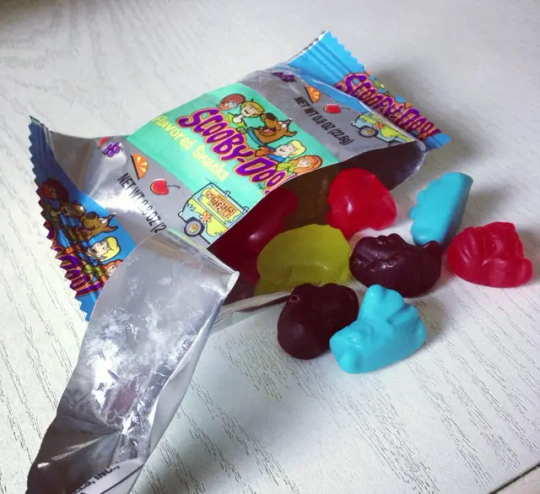
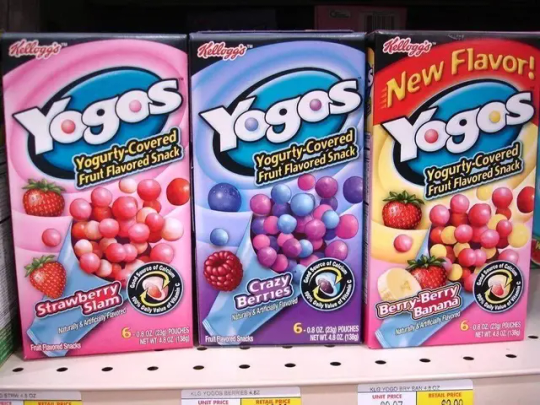

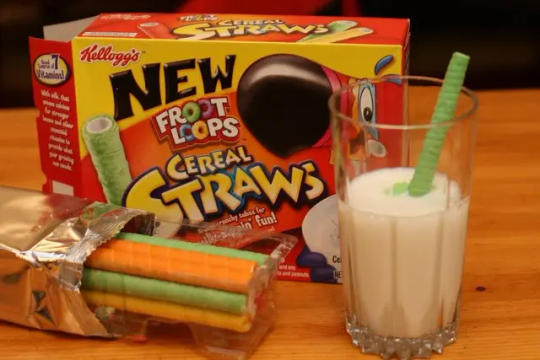
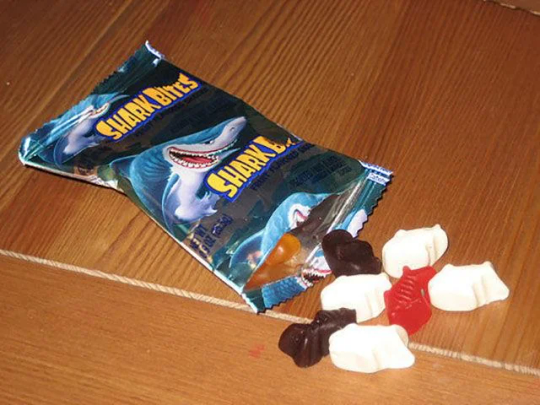
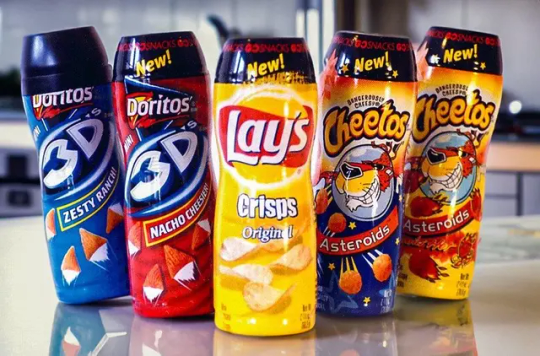
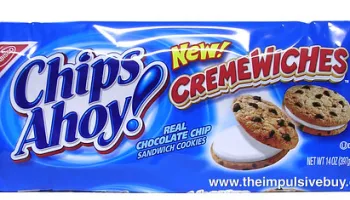




#back to school#kids#snacks#2000s#kidcore#kidwave#elementary school#nostalgia#walmart#target#kmart#raphls#stater bros#foods 4 less#albertsons#nostalgiacore#retro#childhood memories
134 notes
·
View notes
Text
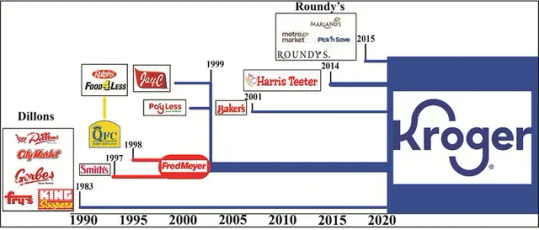


Pictured above is the companies kroger owns, and the companies albertsons owns. All the companies they would own if the merger didn't fail.
And while Albertson's claims it's unrelated to the failed merger, they are already closing stores and making 87 people unemployed .
#tiktok#albertsons#Albertson's#grocery store#groceries#kroger#capitalism#capitalism is evil#capitalism is a scam#capitalism is hell#capitalism is a disease#capitalism is the worst#late stage capitalism#capitalism kills
17 notes
·
View notes
Text
“Only a handful of companies control the cereal market. And the cost to consumer is really interesting because Americans are used to fewer choices. I'm thinking about the impact of Walmart on smaller businesses. The trade-off was that the prices were cheap. But in reality, we are actually paying more because we have less choice.
What's happened is when you have concentrated power over any market, those who have the power get to dictate wages to the workers and also what they pay to their suppliers. And in the food system, that would be farmers, ranchers. And if you look at what's happened in the last 40 years in the United States, we've had remarkably stagnant wages for ordinary Americans and we've had a huge decline in the number of farmers and ranchers and the middleman is able to take the profit.
And that's why you need competitive markets. That's what capitalism is supposed to be about, but what we really have is a form of corporate socialism. And once four companies control about 40% of a market, you don't really have competition anymore because they're able to signal to one another price increases.
They're able to signal to one another how much they want to pay suppliers. A good analogy would be, let's say you want to sell your house. If you're going to sell your house, you want 50 to 60 people really eager to buy it. But if there's only one or maybe two, you're much more likely to get a lower price. And that's what America's farmers and ranchers have now found. And it's devastated the countryside as a result.
But when we go to the grocery store, we go right down any major city street and we see several grocery stores, we actually think we're looking at different stores with different options. And that’s really not true.
You know, when you go to the supermarket, there are thousands of products and you think they're independent companies, but they're made by a handful of companies. The Biden administration right now is trying to block the merger of Kroger's and Albertsons.
These are the two biggest supermarket chains, but you wouldn't necessarily realize it because they operate under dozens of different names. So I'm just going to give you some of Kroger's, for example, supermarkets. Ralph's, Dillon's, Smith's, King's Super's, Fry's, QFC, City Market, Owens, JC, Baker's, Harris Teeter, Pick and Save, Metro Market, Fred Meyer, and then Albertsons's, Safeway, Vaughan's, Shaw's, Tom Thumb, United Supermarkets, Pavilions, Cars, King Foods, on and on and on.
So you think you have a choice of dozens of different supermarkets, but it's only two. And if this merger is allowed to go through, it'll only be one.”
—The illusion of choice and the oligopolization of the food industry
#politics#kroger#albertsons#grocery stores#oligopolies#capitalism#mergers#mergers and acquisitions#supermarkets#illusion of choice#market consolidation#krogers#enshittification
40 notes
·
View notes
Text
Grocery chain Albertsons called off its $25 billion merger with Kroger, ending the largest proposed merger in US supermarket history. “We have made the difficult decision to terminate the merger agreement,” Albertsons CEO Vivek Sankaran said in a statement Wednesday. The merger, announced in 2022, sought to combine the fifth and tenth largest retailers in the country. The companies own dozens of grocery chains, including Safeway, Vons, Harris Teeter and Fred Meyer. Albertsons also sued Kroger for breach of its contract agreement, alleging Kroger caused the merger to be blocked. Albertsons said that Kroger failed to exercise its “best efforts” and to take “any and all actions” to secure regulatory approval of the merger.
18 notes
·
View notes
Text
Reuters, via The Guardian:
A US judge blocked the pending $25bn merger of US grocery chains Kroger and Albertsons on Tuesday, siding with the Federal Trade Commission (FTC) in a win for the Biden administration. The FTC argued at a three-week trial in Portland, Oregon, that the merger would eliminate head-to-head competition between the top two traditional grocery chains, leading to higher prices for shoppers and reduced bargaining leverage for unionized workers. Kroger fought those claims, saying the deal would bring prices down, particularly at Albertsons stores, where it said prices are 10-12% higher than at Kroger stores. The merged company would fund price cuts through cost savings it expects from a larger operation, and a larger customer base to drive revenue for Kroger’s data consulting business, Kroger said.
The Kroger-Albertsons merger got blocked.
#Mergers#Business#Kroger#Albertsons#Kroger/Albertsons Merger#FTC#Federal Trade Commission#Workers' Rights#Grocery Stores#Supermarkets
7 notes
·
View notes
Text
9 notes
·
View notes
Text
Honestly really surprised the Kroger-Albertsons merger was blocked but it is incredibly funny to me that Albtertsons is now suing Kroger for basically not doing a good enough job trying to buy Albertsons

source
4 notes
·
View notes
Text
The Kroger-Albertsons merger is dead! 🎉
A judge blocked it and now the girls are fighting as god and anti-trust regulators intended 😊
#Kroger#Albertsons#news#Kroger-Albertsons merger#for anyone who cares about grocery prices this is great news
3 notes
·
View notes
Text

God I hope Biden and many states suing the FTC prevents the Kroger Albertsons merger.
4 notes
·
View notes
Text

“Back in 2015, Leonard De Monte was feeling settled. At 31, he had health insurance and was making a union wage at the Vons grocery store in Woodland Hills, Calif., where he had worked for more than a decade. A familiar face in the bakery section, he knew dozens of frequent shoppers’ orders by heart.
Then came a corporate merger: Albertsons acquired its rival Safeway, Vons’s parent company. Mr. De Monte’s store was sold to a third chain as part of the deal, and within months of the change, the store’s new owner declared bankruptcy. Mr. De Monte found himself out of work.
Former customers vouched for him, and he found a new job at a local Pavilions, part of another grocery chain owned by Albertsons. But he had lost his seniority and was demoted to minimum wage.
“All my hard work was flushed down the toilet,” Mr. De Monte said.
Now, nearly 10 years older and having finally worked his way up to a wage of nearly $27 per hour, he’s experiencing déjà vu: Albertsons is trying to merge with Kroger in a $24.6 billion deal that will be the biggest grocery combination in history if it goes through. The two chains have agreed to sell 579 stores — out of about 5,000 — to a third company in an effort to satisfy antitrust regulators. The Pavilions where Mr. De Monte works is on that list.
Mergers often create anxiety for workers who stand to lose jobs or benefits when companies combine. The United Food and Commercial Workers International Union, or U.F.C.W., which represents most in-store workers at Kroger and Albertsons, has spoken out against the proposed deal, though it doesn’t have much ability to stop it.
But the union does have a powerful ally: the Federal Trade Commission. The agency sued to block the combination, and a trial that will decide whether the two chains can join forces is scheduled to start in federal court in Oregon on Monday.
(…)
But within its legal complaint is another claim, one that has surprised some antitrust experts because of its novelty. The combination of the nation’s two biggest supermarket chains, the F.T.C. argues, would erode the bargaining power of unions and harm not just consumers, but workers as well.
Starting in the late 1970s, after a period of robust antitrust enforcement, regulators eased up on challenging corporate mergers. Regulators under the Biden administration, however, have made cracking down on corporate concentration a priority. And for the first time, merger guidelines updated last year by the F.T.C. and the Justice Department explicitly outline the agencies’ emphasis on how corporate mergers could reduce competition for workers and result in lower wages or worse benefits.
“Recognizing that there’s a web of intersecting harm that can happen is an extension, in my mind, of the underlying principles of antitrust enforcement,” said Christine Bartholomew, a professor at the University at Buffalo School of Law who teaches antitrust. “The pendulum is swinging back to recognize the broader types of harm from anticompetitive conduct.”
The attorneys general of Colorado and Washington State, who have separately sued to block the supermarket deal, also centered workers in their complaints.
The grocery industry has seen waves of consolidation since the 1990s. Now just four companies — Walmart, Kroger, Costco and Albertsons — account for about half of all grocery sales.
Kroger and Albertsons collectively employ about 700,000 people. The new corporation would operate under the Kroger name, and a Kroger spokeswoman said all frontline workers would keep their jobs and existing union contracts. But Mr. De Monte is not convinced that his job and benefits would be guaranteed, or that the chain buying his store would keep it open.
The F.T.C.’s position today looks very different from the one it took in 2015. Back then, the regulator approved the merger of Albertsons and Safeway, satisfied that the 146 stores eventually sold to a third party — Haggen — would prevent dominance by a single supermarket chain in certain markets.
The U.F.C.W. did not strongly object to that merger or to the sale of stores, either, something the union came to regret once Haggen filed for bankruptcy and thousands of workers lost their jobs.
This time around, Kroger and Albertsons have proposed a similar solution to gain antitrust approval: selling 579 stores — along the West Coast and in Colorado, Arizona, Illinois and a handful of other states — to a company called C&S Wholesale Grocers. But the F.T.C. is not convinced that separating out about a tenth of the stores would effectively maintain competition or mitigate the harm to workers and consumers.
Although only about 13 percent of grocery store workers are unionized, most of the workers at Kroger and Albertsons are represented by the U.F.C.W.
(…)
The U.F.C.W. is concerned that the combined strength of Kroger and Albertsons would intensify a power imbalance with the union. John Marshall, a financial analyst for U.F.C.W. chapters in California and Washington State, said that, individually, both chains had been aggressive at the bargaining table. In 2003, they each demanded concessions from the U.F.C.W., including the introduction of a two-tiered pay structure. Despite setbacks, unionized workers at the companies have retained health and retirement benefits that their counterparts at nonunion rivals like Walmart lack.
Kroger has said it needs to merge with Albertsons to compete against Walmart and Amazon. Walmart employs two million people and has been accused of illegal union busting, allegations the company has denied. A Kroger spokeswoman said nonunion rivals would become “even more powerful and unaccountable” if the merger was blocked.
The F.T.C., however, argues that a combined Kroger and Albertsons would erode unions’ ability to negotiate better pay and benefits in bargaining talks.
“The unions that represent grocery workers leverage the fact that Kroger and Albertsons are separate companies competing for customers and workers to negotiate better terms of employment for union grocery workers,” the F.T.C. complaint reads. The deal would “eliminate that competition” and lead to lower wages, worse benefits and weaker worker protections. An agency representative declined to provide additional comment beyond the legal complaint.
Eric Posner, a professor at the University of Chicago Law School who focuses on antitrust, noted that a more dominant Kroger would chip away at unions’ ability to use strikes as a bargaining tool.
“If the worker can find an equally good job elsewhere, then the workers can stay on strike longer, and that means the employer will have to give and make concessions,” Mr. Posner said.
He said he was not aware of any other antitrust cases that limited the scope of harm to unionized workers. And regulators have raised labor-related concerns in only one other case that has gone to court, Mr. Posner added. In that 2022 suit, the Justice Department successfully blocked a merger of book publishers, focusing on authors as workers who stood to be harmed by the deal.
On top of weakened bargaining power, workers — especially those who experienced the fallout from Albertsons’s takeover of Safeway a decade ago — are concerned about potential store closings and layoffs.
(…)
Kroger has portrayed C&S, which has signed up to buy the 579 stores that would be shed under the merger, as a pro-union operator. Lauren La Bruno, a C&S spokeswoman, said the company would recognize the union work force and honor all collective bargaining agreements.
But Mr. Marshall of the U.F.C.W. said that at two meetings in January, C&S representatives had refused to promise to negotiate new collective bargaining agreements with the union once the current contracts expired. Contracts covering more than 100,000 Kroger and Albertsons workers, mostly on the West Coast, are set to run out next year, he said. Ms. La Bruno did not respond to a request for comment on those meetings.
C&S is primarily in the wholesale grocery supply business and currently operates just 23 supermarkets nationwide, according to the F.T.C. While Ms. La Bruno said the company had enough financial strength and experience in food retailing to operate hundreds more stores, antitrust experts and regulators say another Haggen-style collapse is likely if the deal goes through. They argue that C&S doesn’t appear to be equipped to efficiently operate hundreds of supermarkets.
(…)
“This company might just shut down the stores after buying them,” Mr. Posner said.”
“The United Food and Commercial Workers Union Local 555 has changed course in its support for the proposed $24.6 billion Kroger, Albertsons merger, releasing a statement on Saturday announcing it’s pulling its support for the deal.
The union represents some 30,000 workers, many of whom are employees at Kroger and Albertsons banners in Oregon, Washington, Idaho, and Wyoming.
The move comes as roughly 4,500 workers at Kroger-owned Fred Meyer stores in metro Portland, Oregon, authorized an unfair labor practices strike. The union has not yet selected a date for the strike.
(…)
“Their obnoxious decisions at the bargaining table have let down both their workers and their customers. We’ve had no other option but to file a federal lawsuit on the matter and withdraw our support for the merger.”
(…)
The decision comes six months after UFCW 555 announced its support of the merger, making it the only local in the country to support the deal.
The issue for the union is centered on the store divestiture part of the deal, wherein Kroger and Albertsons would collectively sell 579 stores to C&S Wholesale Grocers in an effort to appease federal regulators and attorneys general across the country concerned that the merger would create a monopoly.
Many of those stores on the divestiture list are located in Oregon, Idaho, and Southwest Washington.
In February, Clay said a meeting with C&S Wholesale Grocers leadership eased the union’s concerns that C&S Wholesale Grocers would uphold labor obligations made by Kroger and Albertsons.
“C&S has the opportunity to bring a long-term strategy to a grocery industry focused on the short-term demands of shareholders and private-equity investors,” Clay said in February. “Employees of Kroger and C&S will be better off than employees of other potential buyers whose actions never seem to match the image they project publically. In a refreshing change of pace, C&S seems poised to deliver a much-needed fresh perspective for employees and customers alike.”
Miles Eshaia, a spokesperson for Local 555, said in an interview with Supermarket News in February that Albertsons owner Cerberus Capital Management plans to sell the chain even if the Kroger deal falls through.
Meanwhile, unions across the country have opposed the merger. In July, members of locals 7, 324, 400, 770, and 3000 held a press conference to voice their opposition to the deal.
That press conference came one day after Kroger and Albertsons released a full list of the 579 locations that would be divested if the deal is approved.
“Yesterday, you may have heard that Kroger and Albertsons released a list of 579 stores across the nation that they are proposing to divest to C&S Wholesale Grocers if the merger is allowed to proceed. Making this list public changes nothing,” UFCW 770 President Kathy Finn said in July. “The merger is not a done deal, and this coalition continues to do everything we can to stop it.””
“Big companies promoting terrible mergers that cause untold layoffs and consumer and market harms — while promising none of that will actually happen — is a proud, fifty-plus year American tradition. And it requires a symbiosis with lazy, (not-coincidentally also highly consolidated) major media empires.
Case in point: grocery giants Kroger and Albertsons are floating a $24.6 billion merger that regulators have been justifiably skeptical about. Experts who study grocery consolidation for a living all indicate that, just like most major mergers, the deal will likely harm consumers and workers alike. States and the FTC have sued Kroger, and Kroger countersued the FTC, claiming antitrust enforcement is “unconstitutional.”
Kroger (and tell me if you’ve heard this one before) is pinky swearing that increased consolidation in the already consolidated grocery space will increase jobs, boost competition, and lower prices for consumers. On that last point, the company this week told the press that if the merger is approved, they’ll dole out $1 billion in immediate savings to consumers.
The promise is baseless. As you see in tech and telecom, pre-merger promises are utterly valueless. U.S. regulatory enforcement of merger promises is completely feckless, and getting weaker in the wake of major Supreme Court rulings. Antitrust academics insist there’s nothing in the promise that’s worth anything. And yet Bloomberg, Reuters, and CNBC all parroted the claim mindlessly: (…)
One local Boise outlet, BoiseDev, actually crunched the numbers, and found that even if Kroger followed through on the promised price cuts (which again they wouldn’t, because that’s not how consolidation works), they’d amount to about four cents per store visit per consumer.
Several Senators and State AGs have expressed concerned that the one-two punch of consolidation (read: less competition), fused with new dynamic store-shelf display tag pricing tech, could make it easier than ever to screw consumers. Combine that with a Supreme Court regulatory assault on regulatory oversight of, well, everything, and the potential harms to Americans become rather clear.
I don’t mean to wander outside of our beat into grocery news, but the treatment of the merger by major outlets is a perfect demonstration of the U.S. press�� complete failure to fully, accurately report on corporate behavior and its real-world impact. Most U.S. business journalism isn’t journalism, so much as a weird fan fiction that tells investors, executives, and media owners precisely what they want to hear.
It’s a world where history doesn’t exist, academic antitrust expertise doesn’t exist, real-world consumer and labor harms are downplayed or ignored, and executive statements are almost always taken at face value, even if the executive has a long-history of lies. The coverage broadly reflects the anti-regulation, anti-consumer, anti-labor, shot-term profit seeking interests of center-right billionaire ownership. The same ownership, that, again, not coincidentally owns what’s left of mainstream U.S. journalism.”
“Albertsons (NYSE:ACI) may face a bleaker future if it isn't able to complete its almost $25 billion sale to Kroger (NYSE:KR).
"There are limits to what we can accomplish without the scale," Albertsons attorney Enu Mainigi said during the opening statements of the first day of the trial of the Federal Trade Commission's attempt to block the deal on Monday. "If a go-it-alone Albertsons is going to have a chance of competing effectively, it will need to fundamentally change it's cost structure."
The standalone strategy for Albertsons (ACI) may include layoffs, closing stores, and/or exiting certain markets," Mainigi explained.
(…)
The FTC sued to block the combination in February, saying the supermarket deal would lead to higher prices for consumers. Eight states and Washington, D.C. also teamed up with the regulator to halt the deal. Colorado and Washington also separately filed lawsuits to try to put an end to the deal.
The supermarket chains argue that they need to get bigger to better compete with Walmart (WMT) Amazon (AMZN) and Costco (COST). They also say that through the divestiture of nearly 600 stories to C&S Wholesale Grocers they will be creating a viable competitor in the supermarket space.
The trial is expected to last until Sept. 13 in Portland, Oregon federal court in front of Judge Adrienne Nelson.”
#albertsons#kroger#shaws#grocery#grocery store#groceries#union#ufcw#u f c w#unions#workers#labour#ftc#monopolies
4 notes
·
View notes
Text

A Kroger exec admitted the company hiked prices at Colorado stores in areas where it faced fewer competitors. Imagine what might happen if Kroger and Albertsons are able to merge their 5000 stores across 48 states? Less competition means higher prices for you. - @robertreich
#kroger#albertsons#history#white history#us history#republicans#jumblr#democrats#black history#capitalism#greed
2 notes
·
View notes
Text
Do you guys remember these mid 00s snacks?
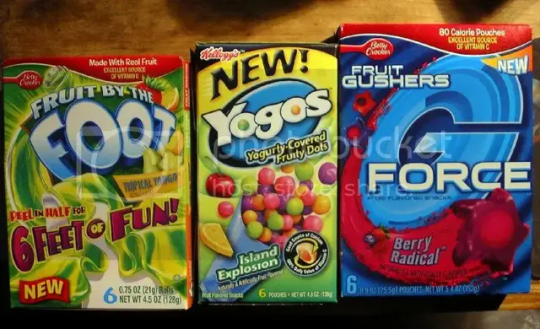


#back to school#kids#fruit#snacks#lunch#food#2000s#kidcore#kidwave#preschool#walmart#target#kmart#ralphs#stater bros#foods 4 less#albertsons#nostalgia#childhood#retro
4 notes
·
View notes
Text
Oh, and for no reason...


#tiktok#Albertson's#kroger#monopolies#monopoly#Albertsons#grocery store#merger#capitalism#capitalism is a scam#capitalism is a disease#capitalism is the worst#capitalism is evil#capitalism is hell#fcc#polls#ceo
16 notes
·
View notes
Text

little frost imp wizard of the albertsons parking lot ((he sells you good stuff but it will damage your brain a little))
more practice in krita today i like it a lot i love all the brushes :3
2 notes
·
View notes
Text
can someone explain the differences between various American grocery stores
#specifically SoCal/Arizona/Utah area#like which one should I shop at#like trader Joes#aldi#albertsons#Ralph’s?? is that a grocery store??#aldi sounds like a shoe store#*insert other stores*
16 notes
·
View notes